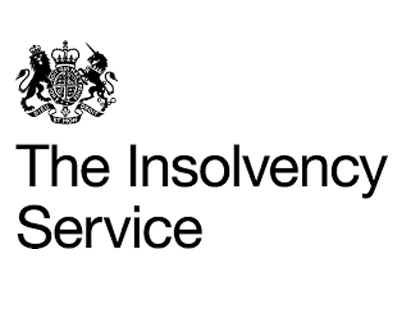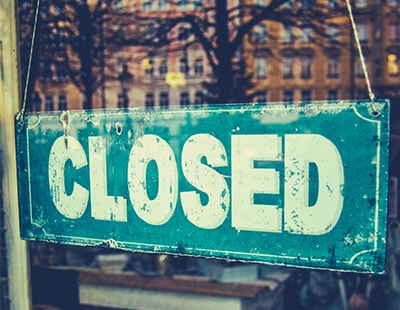If UK high street agents are already in such a state of financial distress, what does the future hold? In the year 2050, what will the UK property industry look like?
Driving, driving, driving, my mind conjured two exaggerated pictures of tomorrow; the utopian future and the dystopian future.
Agent dystopia
The dystopian future for the high street agent started with opinions like those found on the Reddit feed about the BBC article on the Moore Stephens research. Here are a few examples of public opinion towards agents in 2018, I will censor with rhyming words:
- “Estate agents suffering... stopped there. Good. Pluck them.”
- “Serves the duckers right. They contribute nothing to society.”
- “Cry me a rucking river, they tried to charge me £30 for picking up my keys to the house that i just bought...pluck ‘em!”
- “Just the phrase, ‘Estate agents suffer’, makes me all warm inside!”
- “Serves the useless money grabbing runts right.”
It started here and got steadily worse. Before long, public opinion of high street agents hit rock bottom and the hybrids swooped.
The pictures in the news were heartbreaking. Agents left out on the street, suits starting to fray, iPhones totally out of battery. A lucky few found short-lived success during the brief boom in popularity for barbershop quartets, but, unsurprisingly, that didn’t last long.
Agents were forced to move into hospitality and, at worst, youth work.
But, even though the ‘onbrids’ enjoyed victory - this is an exaggerated dystopia, remember, before I get a whole host of abusive tweets! (although have you seen the Countrywide share price of late...?) -, that, too, was short-lived.
The government’s total lack of response to the housing crisis of 2018, fuelled by their reluctance to invest in cheaper, innovative construction techniques and failure to address the bureaucracy of the planning process, resulted in a social epidemic where people were forced out of their homes by gentrification and rocketing values left those most in need with nowhere to live.
It didn’t take long for the shanty towns to start appearing. First to the north of London, and then popping up beyond the boundary walls of most major UK cities.
Not only have these townships created vast social emergencies but they are exclusively operated outside of the law. Homes are bought, sold and leased on the black market. The property industry has no control over it whatsoever.
The government and the property industry shoulder much of blame, but so too does the finance industry. Between 2020 and 2040, the laws and regulations around financial transactions became so complex and convoluted, due largely to a number of failed attempts to address inequality, that people soon gave up on even trying to navigate it.
This, combined with government initiatives to create longer tenancy contracts, means that those who own their homes constantly put off the idea of moving, and those who rent have little reason to think about buying.
The result is a property industry on its knees. Online and high street failed to find a working relationship and their bitter rivalry saw the high street lose the confidence of the public before online agents struggled to maintain revenue in a country where over 40% of the buildings operate on the black market and the majority of people have no incentive to navigate the expensive and complex process of buying.
Oh, and just to add to woes, nobody ever did anything about global warming so the entire island is slowly sinking.
Agent utopia
Still nobody did anything about global warming, but the weather in the UK just keeps getting better and better. Tourism is booming and Skegness, Bournemouth and Felixstowe have become the glamorous playgrounds of the rich and famous. Capri was flooded years ago.
What’s more, the relationship between technology and the high street has blossomed. There was a real struggle there, for five or six years, a battle from which it was assumed only one victor could emerge. But, against all odds, a balance was found.
Today, in the year 2050, high street agents use technology to complete all of their admin tasks and keep track of all market activity, alerting them to anything that may deserve their attention.
The agents themselves are now relied upon for their knowledge and trusted expertise as deal makers. So much so that the onbrids and the high street agents have become, in many ways, collaborators was well as competitors.
Even though the public loves the efficiency and freedom that online technology has bought, it has never managed to replace the desire for human interaction and trusted, honest advice.
High street agents worked hard to repair their damaged reputations, see Reddit, and finally won trust by using a new tactic whereby they put the client first at all times. No longer do they chase as much commission as possible, instead they work with care and consideration to make sure that their client finds the best home for the best price. Good agents have found great success with this experimental sales technique.
In 2050, rather than it being assumed that the future only has room for either high street or online, it’s been realised that both can exist together and that it’s up to each firm individually to win business from the public.
It was eventually realised how unfair it was to make the public choose which one they wanted to be left with, high street or online, as we did between 2015 and 2025, so the burden was rightly shifted onto the agents and hybrids themselves to offer the best possible service and let free market competition dictate who thrives and who dies on each respective side.
Elsewhere in utopia, the government’s embracing of modular buildings and 3D printing has allowed for good quality, affordable homes to pop up all over the country.
The housing crisis was officially declared over in 2030, by former England manager turned Prime Minister, Gareth Southgate. Interestingly, after Southgate’s World Cup managerial debut in 2018, his sartorial influence swept the nation, resulting in the popular waistcoat trend which continues to this day. For the first time in decades, the gap between the richest and the poorest is closing, if not in terms of money then certainly in the terms of opportunity.
The work that technology has done to the financial systems in the UK since 2020 is extraordinary. Such is the efficiency of our processes and regulations that deals can now be done with the click of a button or the wink of an iEye - an incredible microchip implant from Appoogle, the powerhouse conglomerate formed when Apple and Google merged in 2025, which turns one of your eyes into a Terminator-style display.
The financial systems we now have in place, thanks to innovations such as impenetrable online ledgers, are such that if someone wants to sell their house and buy another, they can do so more-or-less overnight. This is particularly important due to transient nature of 2050’s population. People now move, on average, every four years. And because there is plenty of housing, prices are now more affordable.
Whilst many will continue to choose to rent, as has been the trend ever since Generation Rent, it’s become clear that being transient doesn’t necessarily mean you don’t want to buy.
For those who do, the efficiency of financial transactions has removed the majority of the pain points, meaning that moves can be quick, cheap and easy. Because of this, since 2020, we’ve actually seeing a gradual rise in house sales year on year.
In a lifetime, people may have bought two or three houses, in 2050, that can often go up to eight or nine. We saw it happen with jobs and careers from the 1990s onwards, then it happened with homes.
With all those people buying all those homes with speed and efficiency, aided by knowledgeable and honest agents from either the high street or the internet, the UK housing market is booming.
As such, so too is the UK economy. All because the technology and the profession found a way to work together in symbiosis, leading the agent role to evolve into that of trusted property experts with helpful, cloud-based AI sidekicks.
*James Dearsley is a leading PropTech influencer and commentator. You can follow him on Twitter here.

















%20A%20property%20tale%20for%20our%20times.png)








Join the conversation
Jump to latest comment and add your reply
Odds are High street agents will go out of business long before 2050 for a variety of reasons of which technology is only 1 reason. Like bank branches, travel agents and poundland before. Investors have voted with their digital stock trades at Foxtons and Countrywide on this. Few independents will survive in niche pockets. I pass a closed branch almost every week now driving around London. Falling income per transaction makes High street, staff are marketing costs unsustsimable. Industry profitability is reducing. Only operators with tight margin control can survive.
Please login to comment